Plan B: West Midlands firms react to Covid restrictions
- Published
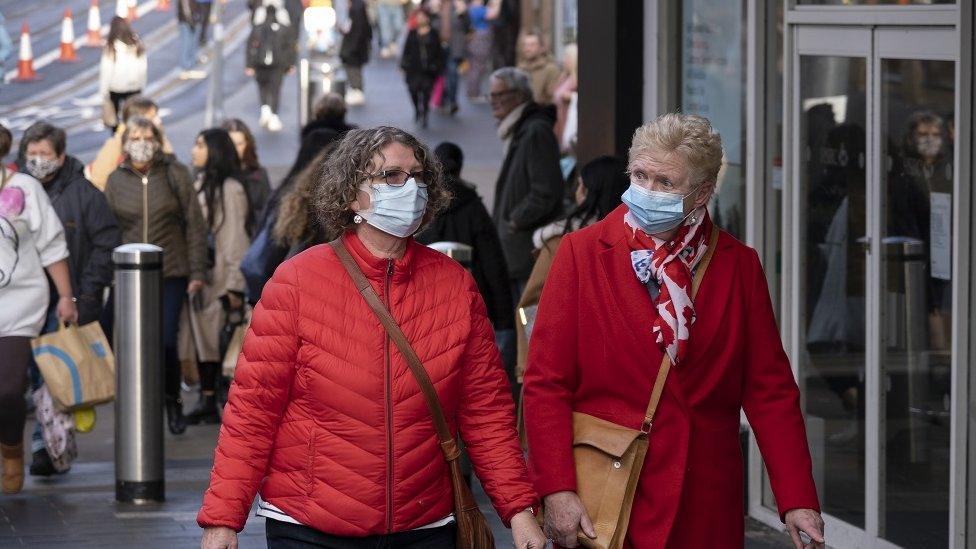
Under the new rules, face masks will be mandatory in more settings
New Covid-19 restrictions will put firms in a "precarious situation", according to some businesses in the West Midlands hospitality industry.
The latest changes by the government include guidance to work from home, wearing masks in most public places and Covid passes for some venues.
Business owners said they were relieved not to face a full lockdown.
However, many small firms said the rules meant they faced a tough Christmas and New Year.
One expressed fears they "may not survive".
Under "Plan B" measures - intended to get a grip on the Omicron variant - the working-from-home guidance comes into effect on Monday next week, and the passes on Wednesday.
The mask measure will be in place before then, from Friday 10 December. The health secretary said the evidence was that Omicron was doubling every 2.5 or three days, which could mean a million infections by the end of the month.
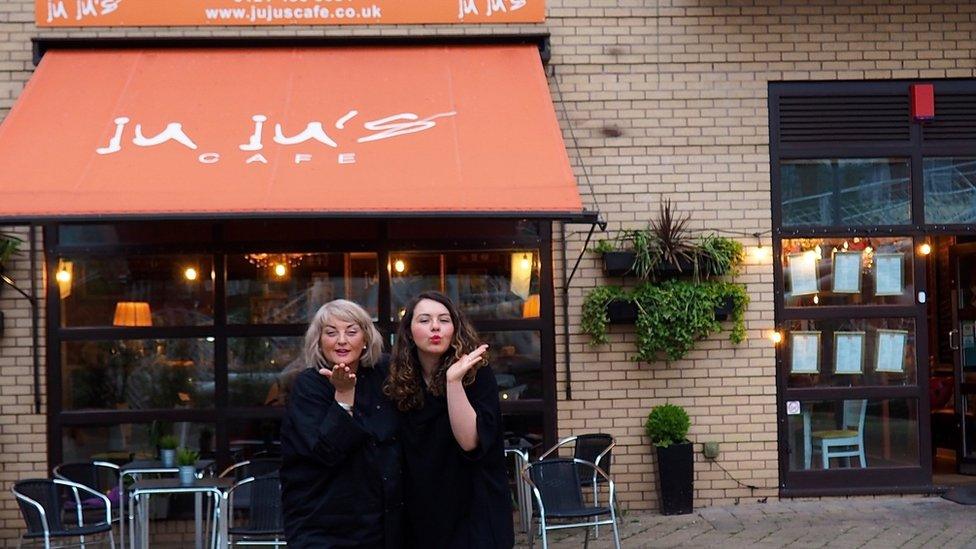
Since the announcement, more than 80 people have cancelled bookings at JuJu's Cafe in Birmingham
Beatrice Pallister runs JuJu's Cafe in Birmingham with her mum and said since the measures had been announced, about 80 people had cancelled their Christmas bookings, accounting for almost a quarter of the small restaurant's covers.
Ms Pallister said it "feels like it's come out of the blue" as pubs and restaurants won't be affected by the new rules, adding the cancellations were "heart-breaking".
"It leaves us in a really tricky spot," Ms Pallister said. "We've just started paying back our government loan, there's no furlough and the next quarter is notoriously difficult for hospitality."
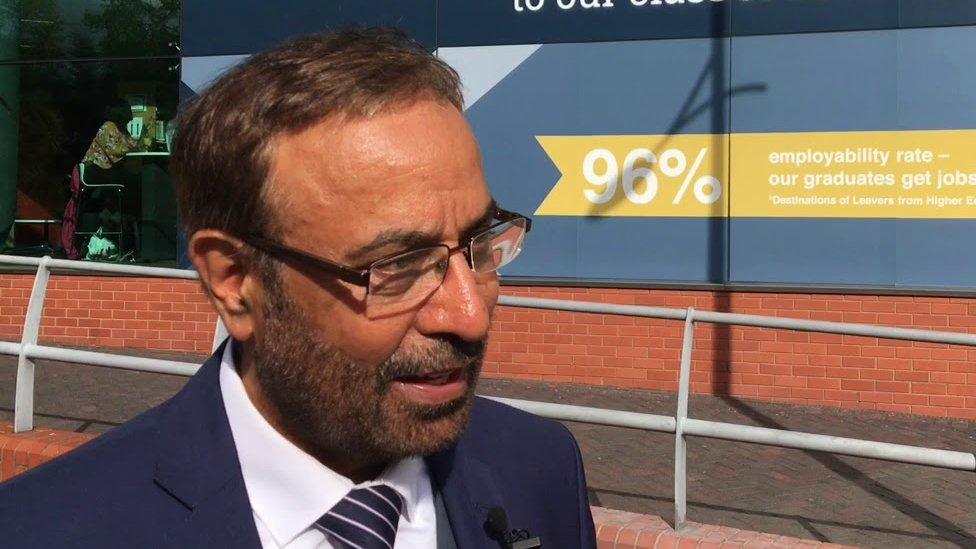
Sham Sharma said businesses were "feeling a bit desperate"
Sham Sharma owns Zuri Coffee in Wolverhampton and said he had already noticed trade falling over the past two weeks.
He is chair of the city's business forum and says if more people work at home that "leaves us in a precarious situation", adding firms will lose further sales and have to "dig deep in our pockets and stay afloat".
"We are feeling a bit desperate," he said. "Obviously there is no help any more, there is no furlough and there is no other help."
In Oswestry, Shropshire, café owner Lucinda Coslett said the lack of footfall would hit her business hard.
"Working from home, as a market trader, it is going to put a lot of small businesses out of business," she said. "We may not survive."

Face coverings have been compulsory for audiences at the RSC since 30 November
From Wednesday, people are set to need an NHS Covid Pass - or a negative lateral flow test - to gain entry to nightclubs and some venues.
The Royal Shakespeare Company in Stratford-upon-Avon had already made the move to make face coverings compulsory for theatre-goers.
It has now updated its guidance further to insist all audience members provide proof they have been double-vaccinated or evidence of a negative lateral flow test.
"Our continued priority is to create the safest and most comfortable environment for people to work in and visit," executive director Catherine Mallyon said.
"Whilst, as an indoor seated venue, we remain legally exempt from new legislation around Covid passports, we want to do all we can to keep everyone safe and ensure that we are able to continue to perform and serve our audiences as we enter the holiday period."
At Coventry's Belgrade Theatre, executive director Joanna Reid said the new restrictions was "like having the rug pulled from under your feet".

Some people have already cancelled tickets to Beauty and the Beast at the Belgrade Theatre
"It's a huge disappointment," she said. "Theatre is so reliant on people's confidence in public health and what 'Plan B' does is really puncture people's confidence."
Ms Reid said the theatre had already received calls from people wanting to cancel their pantomime tickets, this on top of shows being suspended until 18 December following an outbreak of coronavirus among the cast.
"All venues bank on their Christmas offering," she said, adding it would be a "massive problem industry wide" for the long term financial viability of theatres to lose money at this time of year.
At the Queens Hall music venue in Nuneaton, Warwickshire, Richard Burlingham said he was glad the restrictions had not been tighter.
He said after "doom and gloom" for the past 18 months, if ministers went further and forced them to close it "would be a total disaster for us".

Danni Brownsill said she was concerned about enforcing new restrictions
Danni Brownsill, head promoter at the Sugarmill music venue in Hanley, Stoke-on-Trent, said a lot of its audience should be familiar with Covid passes after going to concerts and festivals over the summer.
But enforcing the rules, she added, was "certainly going to be difficult".
"As venue staff, we are not looking forward particularly to this because we probably will get a little bit of pushback but it is something we have got to do," she said.
Ian Archer, chief executive of the Courtyard theatre and cinema in Hereford said the venue had already invested heavily in its Christmas programme and it would "not fill us with confidence" if further closures happened.
He said he felt the government had sent mixed messages over working from home.
"What is the point in putting that in place if you can then go and have a party or then you can go for a meal with friends? It just seems very unclear to me," he said.

Follow BBC West Midlands on Facebook, external, Twitter, external and Instagram, external. Send your story ideas to: newsonline.westmidlands@bbc.co.uk, external
- Published1 July 2022

- Published9 December 2021
- Published9 December 2021
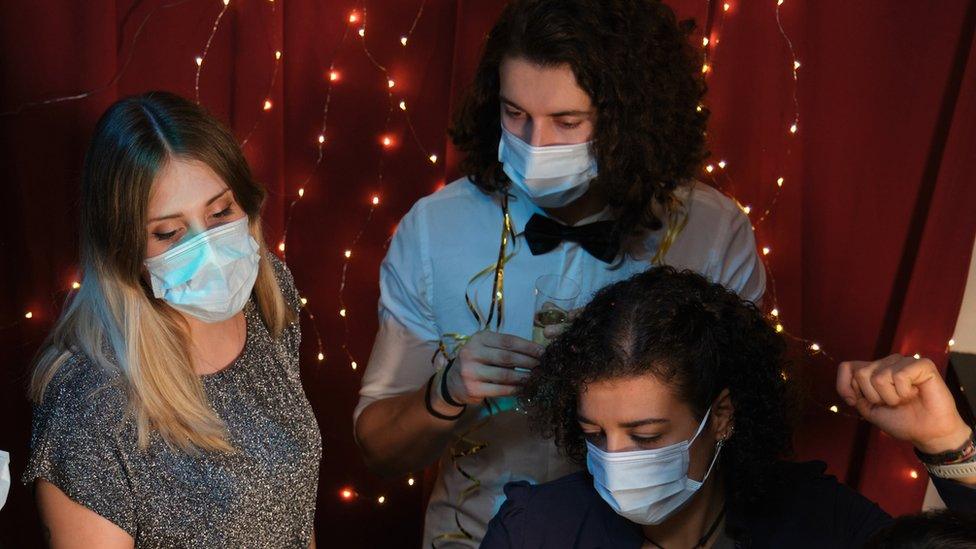
- Published9 December 2021
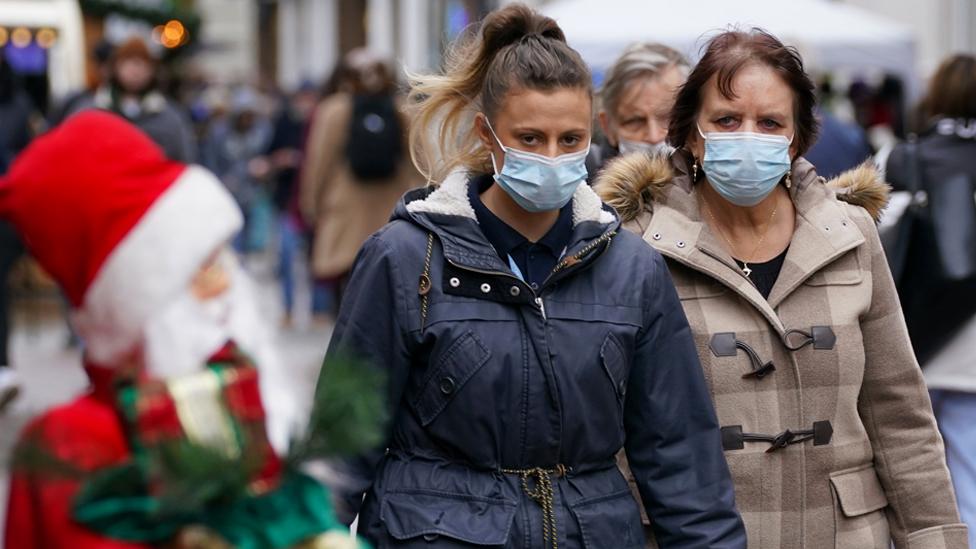
- Published28 February 2022

- Published8 December 2021

- Published29 November 2021
